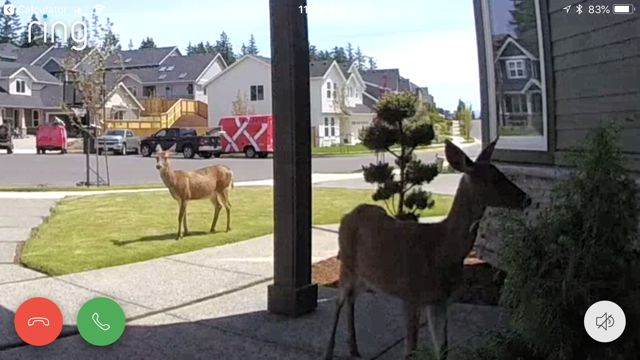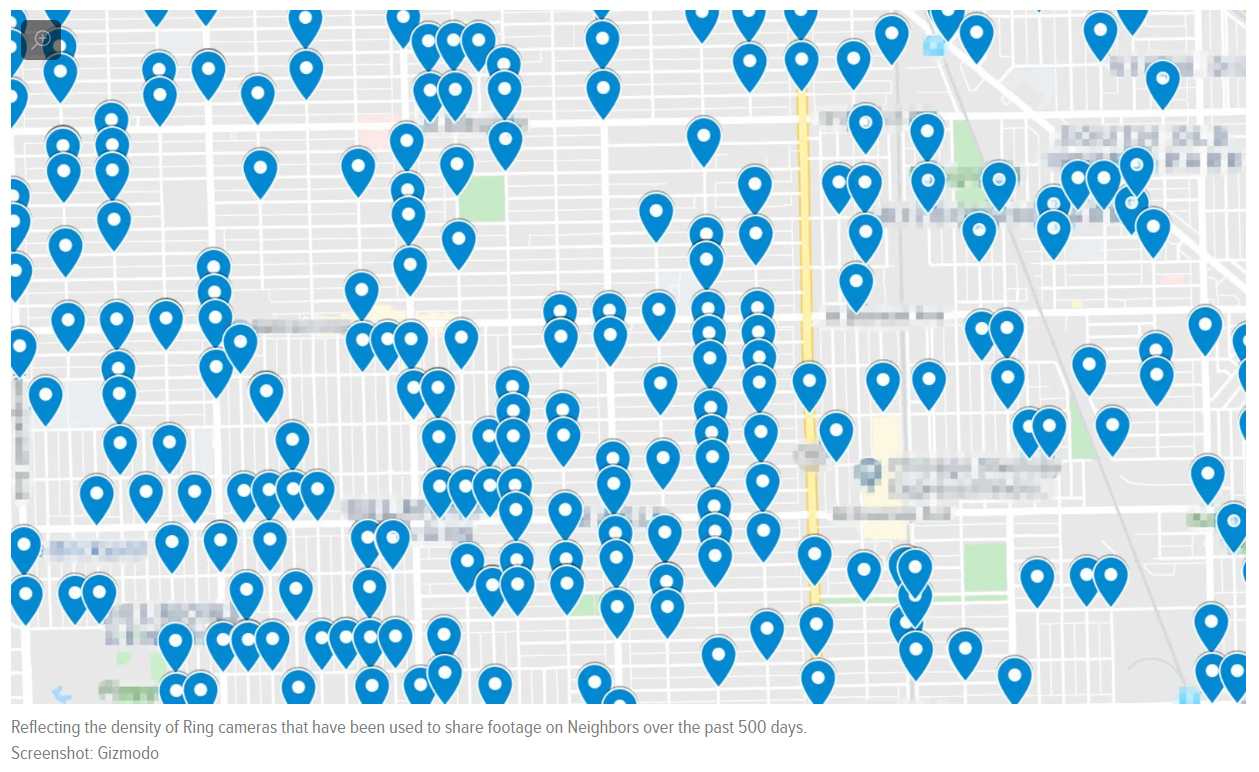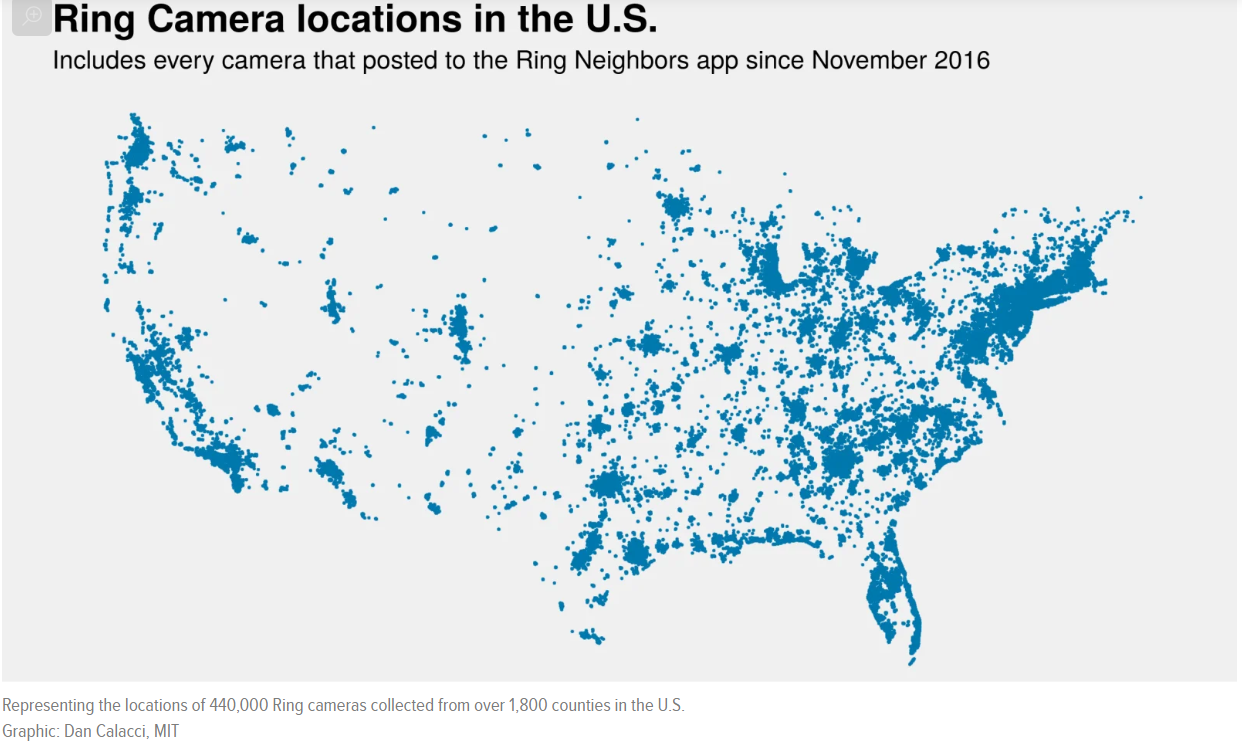I admit it: I was really excited to put up our Ring video doorbell a couple of years ago and start tracking what happens, whenever it happens, out front.
We see the Amazon delivery person drop off the package. Better not steal our box or you'll end up on the news!
We get an alert if someone is walking by or driving by in the middle of the night.
And we've captured some great moments caught on camera in the middle of the day. Like the time our neighborhood deer walked right onto the front porch and seemed to be looking inside: is anyone home?

Amazon buys Ring network
I was optimistic when Amazon spent $1 billion to buy Ring in 2018, believing that would likely boost Ring's cybersecurity and protect everyone who puts up Ring doorbells and the other cameras it makes.
As a cybersecurity journalist, I've interview many leaders at our cybersecurity conferences who speak about smart and connected Internet of Things (IoT) devices.
Many of these cool new gadgets and gizmos are created to get onto the market as quickly and cheaply as possible, with little or no thought given to cybersecurity.
I'm not saying Ring was ever this way, but you never know what you're getting when you connect any smart device to the internet—unless you're in Finland.
And I'm certain Amazon makes cybersecurity a priority, so that's a good sign, right?
Critics: Ring creating a police surveillance network
I didn't think much more about any issues with our Ring camera until a few weeks ago, when I got a press release from the Electronic Frontier Foundation, also known as the EFF.
"We're challenging Shaq to a one-on-one: not on the basketball court, but across the table, so we can discuss with him how the ubiquitous surveillance facilitated by Ring and its privacy-invasive partnerships with police can harm communities."
Yes, the EFF is talking about that Shaq.
NBA star Shaquille O'Neal is a part owner of the company who took equity in the startup as part of his fee for becoming a Ring spokesperson.
And the Ring police surveillance the EFF is talking about? This is how the Electronic Frontier Foundation puts it:
"Amazon and Ring have either ignored or dismissed the growing concerns among privacy experts, activists, and communities about the rapidly expanding number of partnerships between Ring and law enforcement. Two months ago, there were under 300; currently, the number has grown to well over 500.
Thanks to the partnerships with Ring, police only need to click a button to request hours of footage from dozens of cameras at a time. And, if a user refuses to share their footage with police, officers can bring a warrant to Amazon to get that footage."
Could they force me to turn over the potentially viral footage of deer on my front porch?
The EFF says these Ring agreements mean our privacy rolls downhill like a snowball, gaining momentum as it goes:
"In addition, these cameras pose risks to non-Ring users: every day, thousands of unsuspecting dog-walkers, delivery people, pedestrians, drivers, and others are being surveilled by Ring cameras, and by extension, Amazon, and—thanks to these partnerships—police."
Ring cameras vs. privacy vs. neighborhood security
The weird thing is, part of the reason we got the Ring camera was to capture any bad guys and gals in action. Like the "porch pirates" that are on the news all the time stealing packages.
Let's record them, share the video with police, and put them away. If police can easily get that video, great.
A quick check of Ring's Neighbors App, where people share threats, had headlines like this today:
"Trespassers at 1:45 a.m."
"Vehicle break-in"
"Suspicious grey Toyota Prius at front door"
The posts all included video of these events; these seem pretty harmless.
However, the EFF's position did send me on a mission: I walked the neighborhood, just down to the nearest stop sign, to see how many people had Ring doorbells which include that built in camera. I'd never really looked.
It turns out that nine of the 11 homes on our street have a Ring doorbell. And those that do not are being watched by one.
Hmm. Thinking, thinking.
I also confirmed that our local Sheriff's department does have an agreement with Ring.
However, the EFF's argument that this is a bad thing would be a tough sell in our city that just approved paying for extra police patrols with 73% of residents voting yes.
The city I live in is safe and police are regularly thanked for helping to keep it that way.
Gizmodo investigation: are Ring cameras revealing your location?
Again, I didn't think much about it until I came across a recent story by tech publication Gizmodo. It just completed an intriguing analysis of Ring cameras and its related app.
"Gizmodo has acquired data over the past month connected to nearly 65,800 individual posts shared by users of the Neighbors app.
The posts, which reach back 500 days from the point of collection, offer extraordinary insight into the proliferation of Ring video surveillance across American neighborhoods and raise important questions about the privacy trade-offs of a consumer-driven network of surveillance cameras controlled by one of the world’s most powerful corporations.
And not just for those whose faces have been recorded.
Examining the network traffic of the Neighbors app produced unexpected data, including hidden geographic coordinates that are connected to each post—latitude and longitude with up to six decimal points of precision, accurate enough to pinpoint roughly a square inch of ground."
Gizmodo was then able to produce this map of Ring cameras covering a few city blocks of Washington, D.C.

And the publication it could take posts on the app, which do not reveal a specific location, and find the exact home involved.
"In Beacon, New York, a reporter drove to coordinates that accompanied a Neighbors post about thieves stealing packages. Although they didn't pinpoint the user's home precisely, it took only a matter of minutes to locate it. A particular fence shown in the video wasn't hard to spot. To wit, possessing both the footage and the coordinates all but ensures the location of anyone posting camera footage on Neighbors can be located with ease."
Zooming out, Gizmodo talked to an MIT researcher who created this map of Ring related posts on its Neighbors app dating back to 2016. Ring is prolific in many parts of the country.

Ring vs. privacy: what do you think?
The real question is where does this criticism and analysis of Ring cameras leave us?
Gizmodo says we are left with questions:
"There's a lingering fear of what happens should Amazon—whose foray into the commercial surveillance space conveniently plopped it at the top of a poorly regulated industry with ill-defined legal boundaries—decide to get creative with Ring's videos and user data."
The Electronic Frontier Foundation says we are left with a digital police dragnet:
"We're hoping Shaq will sit down with us, one-on-one, and learn how these partnerships turn our neighborhoods into vast, unaccountable surveillance networks. These partnerships with Ring are #NothingButDragnet."
And I am left unsure what to think.
Perhaps I am caught between the feeling of security created in the neighborhood by all of our Ring cameras and the idea that we must somehow be revealing ourselves to the outside world without really knowing what that looks like or where it leads.
What do you think? Please share your opinions on this debate in the comments below. Perhaps you can help all of us see this issue more clearly.




